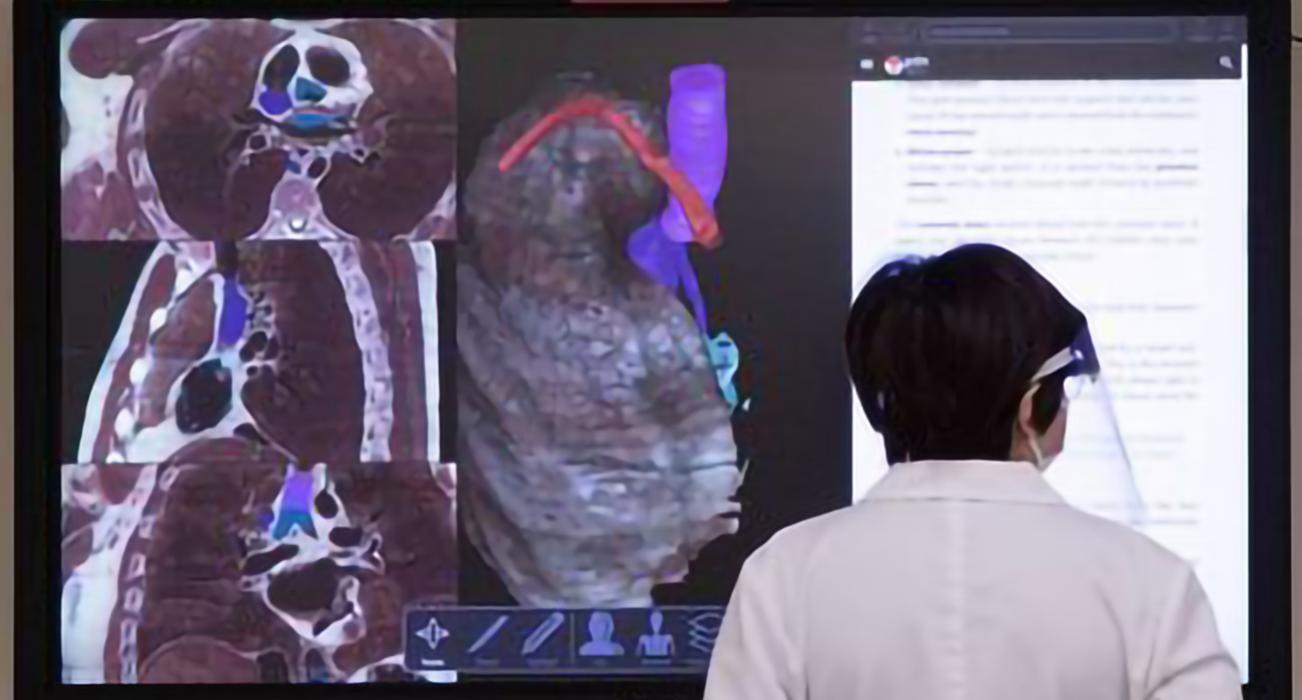Medicine
Fact File
Success in medicine requires application and hard work, both while studying and when in practice. However, it brings great rewards in terms of job satisfaction, involving as it does a combination of science and human interactions, and numerous career opportunities.
At Cambridge, you study the medical sciences first, before learning to apply that knowledge to medical practice as a clinical student. The first three years (pre-clinical studies) are taught through lectures, practical classes (including hands-on cadaveric dissection) and supervisions, with typically 20-25 timetabled teaching hours each week.
The emphasis during the clinical studies (Years 4, 5 and 6) in Cambridge is on learning in clinical settings: at the bedside, in outpatient clinics and in GP surgeries, which is supported by seminars, tutorials and discussion groups.
In the first year (Part IA) students attend courses in: Functional Architecture of the Body; Homeostasis, Histology, and Molecules in Molecular Science - containing core material previously taught as Anatomy, Physiology and Biochemistry. There are also two shorter courses covering Medical Sociology, Epidemiology and Medical Statistics. These courses are examined at the end of the Lent Term, and are a Second MB (for an explanation of this see below) requirement, but these scores do not contribute to the level of attainment in Tripos (i.e. the Class of Degree you achieve).
In the second year (Part IB) students study courses in: Biology of Disease (Pathology); Head and Neck Anatomy; Neurobiology with Human Behaviour (which includes Neuroanatomy); Human Reproduction, and Mechanisms of Drug Actions (Pharmacology). Clinical teaching (Preparing for Patients) continues with students seeing patients in a hospital setting.
In the third year (Part II) students can choose from a number of Specialist Part II subjects typically drawn from Natural Sciences, or Medical or Biomedical specialities. Some students may choose to take courses in an entirely different subject, such as Anthropology, Classics or Law, but admission onto such courses will depend on fulfilling the requirements of the relevant department. Detailed information can be found here.
Clinical experience runs throughout the first three years via the PfP (Preparing for Patients) module. Detailed information about this can be found here.
Following the successful completion of their third year of the tripos (BA), students remain in Cambridge for three more years to complete their Clinical Studies (MB, BChir). More details about Clinical Medical Studies are available on the Clinical School website.
Second M.B. exams
In order to be registered as a Medical Practitioner candidates must satisfy the requirements laid down by the General Medical Council via the various Royal Colleges in the form of examinations for the Second M.B. The Tripos Examination will contain an element which will determine Second M.B. qualification. Students who fail to pass 2nd MB exams at their first attempt will be required to sit them again before the beginning of the following academic year. Students who fail to pass the 2nd M.B. at the second attempt will not be allowed to proceed to the next year.
Magdalene aims to make nine offers in Medicine each year. We offer places to applicants of all nationalities, and from all types of educational background. Around 50% of our Medical Students are female.
Magdalene has four Governing Body Fellows in Medicine and a number of other senior members (Fellows and College Lecturers) in the subject. Personal contact with senior members occurs informally through supervisions, and supervisors are generally available to answer queries. The Director of Studies is available for consultation on academic matters. Your Tutor usually deals with matters of a non-academic nature such as social, financial or psychological issues. The ethos of the College is, however, that should someone need assistance it's provided - so if you need it, don’t hesitate to ask for it.
The New College Library with spacious work areas is open 24 hours a day. There is a substantial Medical Section which contains copies of all the recommended texts for the University courses, and most departments have their own well-stocked specialist libraries which are at your disposal. The College Librarian is always willing to consider purchasing any additional texts students think desirable (with the support of their Director of Studies). Additionally there are large central libraries such as the University Library and the Clinical School Library. There is online access to a large number of journals provided by Cambridge Libraries in iDiscover.
We have a family of skeletons (in fact, half skeletons) which are loaned to first year students (second years have the skull) in order to help them master the intricacies of Anatomy, which we think is crucial if you're going to be a member of the Medical Profession. It is the responsibility of the student to care for their skeleton, and to return them intact at the end of the year.
Magdalene cannot accept applications for the Graduate Course in Medicine or for admission to the Standard Course as an affiliated student (i.e. those wanting to study medicine as a second degree).
We welcome people with a broad range of knowledge to medicine. However, potential medical students will need to be aware that there is a considerable amount of science in medicine (bearing in mind that the course is designated the Medical Sciences Tripos), and that we must require students to have appropriate qualifications. All medicine applicants will need to be studying Chemistry and normally Mathematics plus at least one of Biology or Physics to A-level or equivalent.
The minimum entry requirements at Magdalene are A-level Chemistry, and normally A-level Mathematics, plus at least one more A-level in either Biology or Physics.
We may consider Further Mathematics as a third Maths/Science A-level, but recommend combinations of either Chemistry, Mathematics, and Biology, or Chemistry, Mathematics, and Physics over Chemistry, Mathematics, and Further Mathematics, if you are taking 3 A-levels rather than 4.
For applicants studying the IB, we require either Mathematics, Chemistry and Biology at Higher Level, or Mathematics, Chemistry and Physics at Higher Level (though in this case we would advise some reading of suitable Biology texts).
Our minimum offer level is A*A*A in three maths and science subjects at A-level, or 42 in the IB with 7,7,6 at Higher Level. You will usually need A*/7 in Chemistry and another science or mathematics subject.
IB applicants starting the new IB Mathematics syllabus are expected to take IB Higher Level 'Analysis and Approaches' for any course where Mathematics is a requirement. If this option is not available at your school, please contact the College for further advice and guidance.
National restrictions mean that students under the age of 18 are not permitted to undertake any clinical elements of the Medicine course, which start in Michaelmas Term. Therefore, all medical students are required to be 18 years of age by November 1st of their first year.
Interviews and UCAT (University Clinical Aptitude Test)
Applicants called for interview will normally have two interviews, conducted (usually) by the Directors of Studies in Medicine and College Fellows specialising in Medicine. The interviews usually last about 30 minutes, and should be regarded more as a discussion around various topics rather than as an interrogation. It's our aim to make the interview as friendly as possible. It's difficult to learn much about people who are frightened, so we try our best to put them at ease.
Applicants will also need to take a written assessment. The assessment for Medicine is the UCAT. This is a pre-registration required assessment. You will have to register to sit the assessment at an assessment centre near to you. Registration for the pre-registration required assessment is separate from your UCAS application and it is essential that you are registered by your centre before the deadline, which is 19 September 2024. You need to take the UCAT by 26 September 2024.
The aim of this is not to place an extra hurdle in the applicants' path, but to try and acquire another objective way of assessing potential students so that all colleges and tutors are working from the same baseline. We're trying to make the process as fair as possible. Details of the UCAT are available on the UCAT web site, which also has a page allowing you to practice test questions.
Please note that your performance in the written assessment will not be considered in isolation, but will be taken into account alongside all the other elements of your application.
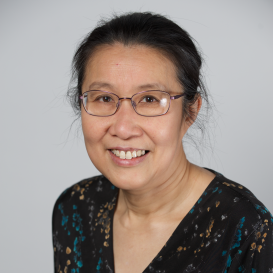
Professor Cecilia Brassett
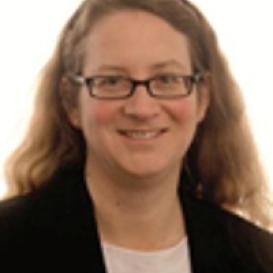
Dr Rowan Burnstein
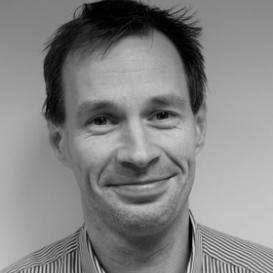
Dr Ari Ercole
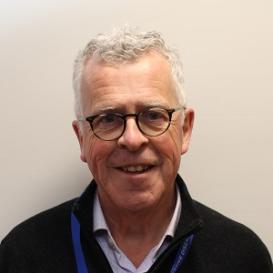
Dr Nicholas Carroll
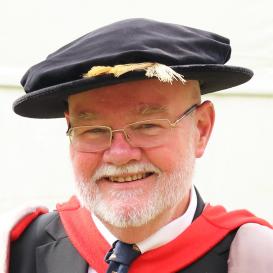
Professor Stewart Sage

Professor Klaus Okkenhaug

